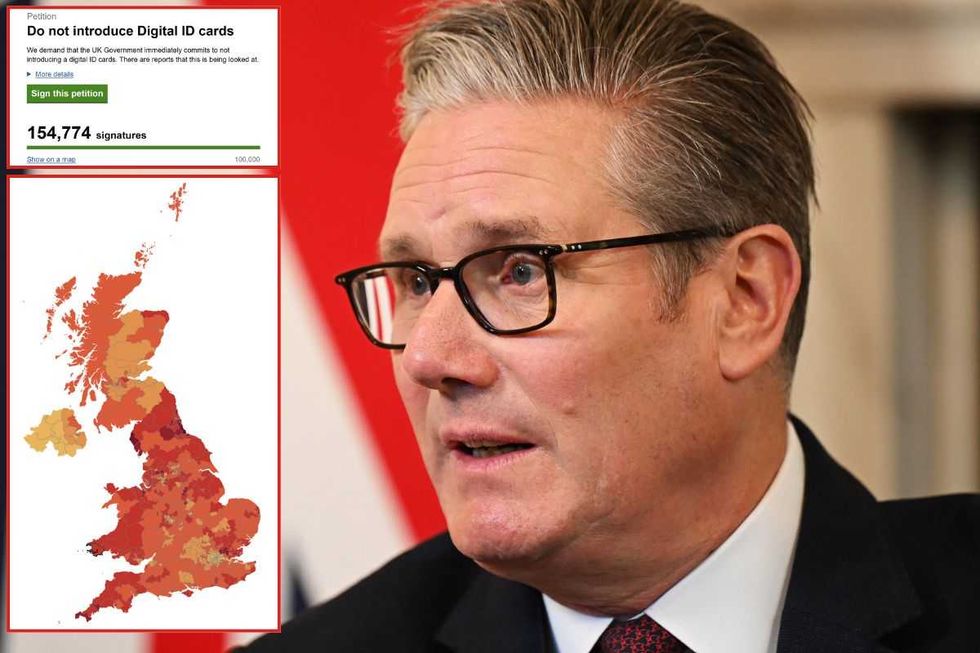A fierce clash erupted on GB News over the Government’s proposed digital identification system, with presenter Michelle Dewberry and commentator Scarlett Mccgwire taking opposing stances on the controversial scheme.
The debate followed Sir Keir Starmer’s expected announcement of the “Brit-card” initiative, designed to address unauthorised employment and reduce Britain’s appeal to those working illegally.

The digital identification proposal would require individuals to present smartphone-based verification when seeking employment or accommodation, with automatic checks against a Government database confirming work eligibility.
The heated exchange highlighted fundamental disagreements about balancing immigration control with personal freedoms, as the presenters sparred over whether mandatory digital identification represents necessary modernisation or excessive state intrusion into citizens’ lives.

Michelle launched a scathing attack on the proposal, condemning it as Governmental failure disguised as policy reform.
“When you start mandating to people that this is what you have to do… Remember during Covid, they tried to control you within an inch of your life,” she declared during Dewbs & Co.
She referenced Sweden’s experience with similar systems, arguing that digital identification had failed to resolve migration challenges in that country.
Her criticism intensified as she addressed what she perceived as governmental incompetence. “I think it is an absolute disgrace. How dare you. How dare you, because you are so poor at your job when it comes to managing migration, that we’ve already got to deal with our communities changing beyond recognition, how dare you because of your own inability, force even more consequence onto law abiding British people.”
LATEST DEVELOPMENTS
- Do NOT buy the immigration ruse. Keir Starmer’s digital ID card is a digital prison – Adam Brooks
- SNAP POLL: Are digital ID cards a price worth paying to crack down on immigration? VOTE NOW
- Nigel Farage blasts PM’s digital ID plan before warning ‘state should never have this much power’
Ms Mccgwire defended the initiative during the broadcast, characterising digital identification as an intelligent measure for addressing unauthorised employment.
The commentator’s position directly contradicted Michelle’s assessment, as she argued the system would effectively target those working without proper authorisation in Britain.

The proposed scheme would function through a smartphone application, requiring job seekers and prospective tenants to display their digital credentials for verification against a central registry of individuals permitted to work within the UK.
Current procedures rely on physical documentation that authorities fear can be counterfeited, whilst some employers allegedly bypass verification requirements entirely.
The system aims to eliminate Britain’s attractiveness to those seeking unauthorised employment, particularly within sectors such as delivery services, by establishing mandatory electronic verification processes.
Britain stands among the minority of European nations lacking a national identification system, a situation critics argue has enabled unauthorised employment to thrive and increased the country’s appeal to those working illegally.
The previous Labour administration attempted implementation of identification cards, issuing the first in 2009, before the Conservative-Liberal Democrat coalition abolished the programme, citing concerns about civil liberty erosion.
Home Secretary Shabana Mahmood has expressed strong backing for digital identification, stating her “long-term personal political view has always been in favour of ID cards” and emphasising the need to address factors making Britain “a destination of choice” for global migration.
The Prime Minister’s announcement is anticipated for Friday at the Global Progress Action Summit in London, where he will appear alongside Australian Prime Minister Anthony Albanese and Canadian Prime Minister Mark Carney.
Our Standards: The GB News Editorial Charter







Follow